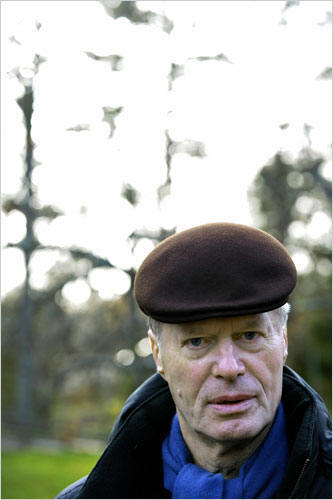| Want to send this page or a link to a friend? Click on mail at the top of this window. |
| Posted August 30, 2009 |
| Books |
|
The Price of Colonialism |
|
|
|
|
 |
|
|
HENRIKSSON/AGENCE FRANCE-PRESSE/GETTY IMAGES |
|
| J.M. G. Le Clézio |
|
By ELIZABETH HAWES |
| ____________________ |
| DESERT |
| By J.M.G. Le Clézio |
| Translated by C. Dickson |
| 352 pp. Verba Mundi/David |
| R. Godine. $25.95. |
| ____________________ |
| Wehaitians.com, the scholarly journal of democracy and human rights |
| More from wehaitians.com |